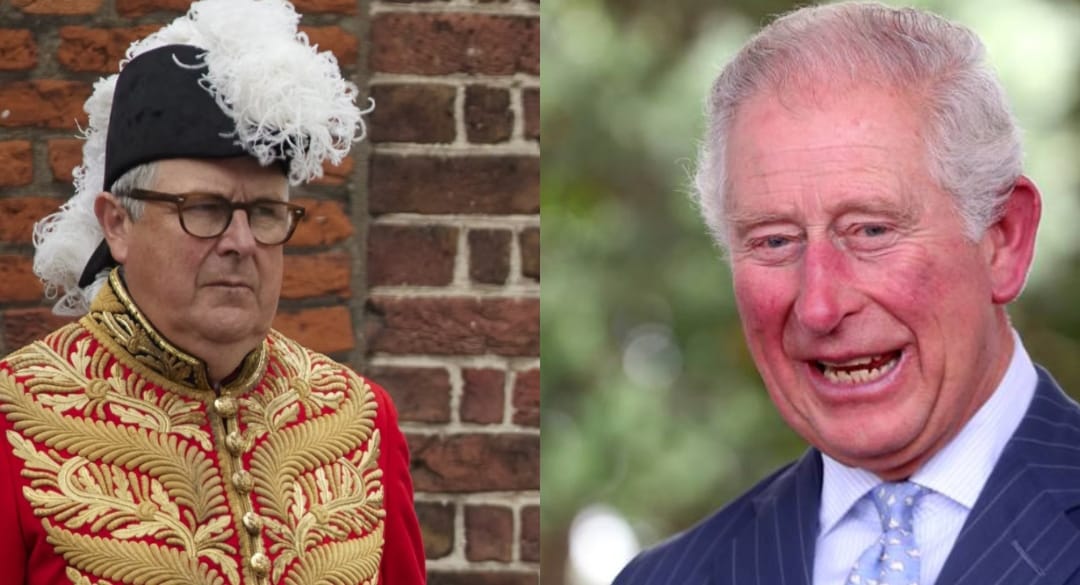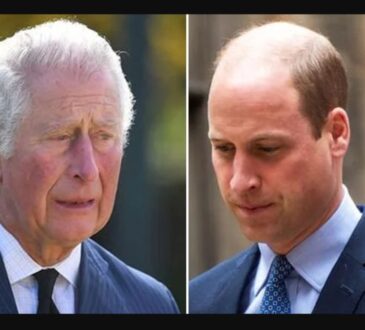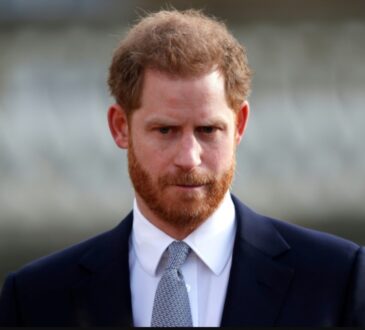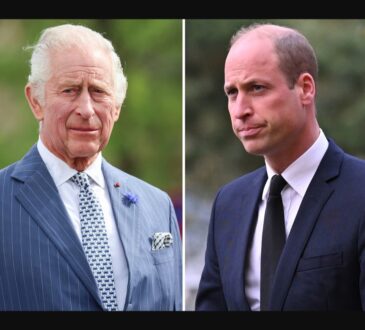“Questions Arise Over Duke of Norfolk’s Role in King Charles’ Coronation Amidst Royal Speculations”

The Duke of Norfolk, Edward Fitzalan-Howard, is a distinguished figure who plays a significant role in the grand ceremony of King Charles’ coronation. As the 18th Duke of Norfolk since 2002, he inherited his father’s esteemed peerages, which bestowed upon him various honors and titles. One such honor, following his father’s passing, was the hereditary office of Earl Marshal, a position of great importance within the British nobility.
The Earl Marshal’s responsibilities encompass organizing and overseeing major ceremonial occasions. Notably, the Duke of Norfolk took on a pivotal role in bringing together the solemn state funeral of the late Queen. With his keen sense of protocol and deep understanding of tradition, he ensured that the funeral proceedings were conducted with the utmost dignity and precision. Once again, for the momentous occasion of King Charles’ coronation, the Duke’s involvement is crucial.
Before assuming the title of Duke of Norfolk, Edward Fitzalan-Howard was known as the Earl of Arundel. His family, boasting a rich aristocratic lineage, traces its roots back to Edward I. An intriguing historical connection can be found in his ancestry, as his predecessor, the 3rd Duke of Norfolk, was the uncle of both Anne Boleyn and Catherine Howard, who were married to the infamous King Henry VIII.
Nestled in the picturesque West Sussex countryside, Arundel Castle stands as the ancestral home of the Howard family for over 850 years. Its storied halls and ancient walls have witnessed the passage of time and hold a wealth of historical significance. As the current Duke of Norfolk, Edward Fitzalan-Howard resides within the castle, maintaining a deep connection to his noble heritage.
Education played a vital role in shaping the Duke’s character and intellectual pursuits. He received his education at Ampleforth College, a renowned institution known for its academic excellence and commitment to holistic development. Later, he continued his studies at Lincoln College, Oxford, further enriching his knowledge and broadening his horizons. Within his family, the Duke has a brother, Lord Gerald Fitzalan-Howard, and a sister, Lady Marcia Fitzalan-Howard, who pursued a career as an actress.
The Duke’s personal life has seen its share of triumphs and challenges. Having been married to Georgina, his former wife, the couple went through a divorce in 2022 after a prolonged period of separation. Interestingly, during this time of estrangement, they chose to continue living within Arundel Castle, albeit in separate wings. Their decision to decline an invitation to the wedding of Prince William and Kate Middleton was attributed to their separation, causing sadness to the late Queen, who held hope for their reconciliation.
While the Duke of Norfolk is known for his behind-the-scenes responsibilities, he has also been a visible presence during significant royal occasions. Observers caught sight of him walking in the procession for the funeral of the revered Queen, joining the somber march from Buckingham Palace to the hallowed grounds of Westminster Abbey. Moreover, he actively participated in the Accession Council’s proceedings at St James’s Palace, where the Proclamation of King Charles was solemnly declared.
As the momentous day of the coronation approaches, the Duke of Norfolk finds himself preparing ardently for the upcoming event. Reports reveal that he has engaged in numerous late-night rehearsals held in the heart of central London, working closely with various military participants. These preparations are essential as he is set to have a prominent role in the King’s Procession, an integral part of the coronation service.
In the lead-up to the ceremony itself, the Duke will join esteemed individuals such as the Marquess of Anglesey, the Duke of Westminster, the Earl of Caledon, and the
Earl of Dundee for the Procession. This distinguished group of individuals will come together to carry the Standards of the Quarterings of the Royal Arms and the Standard of the Principality of Wales, symbolizing the rich heritage and lineage of the monarchy. Accompanied by The Sovereign’s Escort of the Household Cavalry, an awe-inspiring display of regal splendor, they will embark on a ceremonial journey from Buckingham Palace to the hallowed grounds of Westminster Abbey.
The Duke of Norfolk’s role in the King’s Procession is not merely ceremonial but carries deep symbolic significance. As he marches alongside his esteemed peers, he represents not only his noble lineage but also the enduring traditions and values that the monarchy upholds. His presence serves as a reminder of the continuity and stability that the crown represents, bridging the past with the present.
To fulfill his responsibilities with utmost dedication, the Duke of Norfolk has invested considerable time and effort in the preparations for the coronation ceremony. Late-night rehearsals in central London have become a familiar sight as he fine-tunes his role alongside military participants. These rehearsals ensure that every step, every gesture, and every detail aligns flawlessly with the grandeur of the occasion, creating an awe-inspiring experience for all who witness it.
As the Duke of Norfolk assumes his position in the King’s Procession, he will be surrounded by a palpable sense of anticipation and excitement. The eyes of the nation, and indeed the world, will be upon him as he plays his part in this historic moment. His commitment to upholding tradition and executing his duties with precision and grace exemplifies the noble character that has been synonymous with the Howard family for generations.
In conclusion
the Duke of Norfolk, Edward Fitzalan-Howard, stands as a beacon of tradition and heritage, entrusted with a crucial role in the ceremony for King Charles’ coronation. With his deep-rooted aristocratic lineage, his profound understanding of ceremonial protocol, and his unwavering commitment to upholding the monarchy’s values, he embodies the essence of this momentous occasion. As he takes his place alongside fellow dignitaries in the King’s Procession, the Duke of Norfolk leaves an indelible mark on history, symbolizing the timeless connection between the monarchy and the nation it serves.



